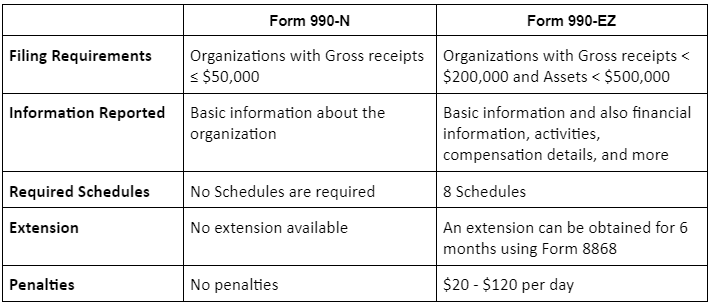The financial services industry is continually evolving, driven by advancements in technology and changing customer expectations. One significant development is the integration of loan origination software (LOS), which plays a crucial role in the lending process. LOS integration helps streamline operations, improve customer experiences, and enhance the overall efficiency of financial institutions. This article explores the importance of integrating loan origination software, the benefits it offers, key features, and best practices for successful implementation.
Loan origination software is a digital solution designed to automate and manage the loan application and approval process. From initial application to loan disbursement, LOS handles various stages of the lending lifecycle, including application processing, credit scoring, underwriting, document verification, and compliance checks. The integration of LOS into a financial institution’s existing systems can significantly enhance the efficiency and accuracy of these processes.
The Importance of LOS Integration
Enhanced Efficiency and Speed
Integrating LOS with other financial systems automates repetitive and time-consuming tasks, reducing the need for manual intervention. This automation speeds up the loan approval process, allowing financial institutions to process a higher volume of applications in less time. Quicker turnaround times can enhance customer satisfaction and give institutions a competitive edge in the market.
Improved Accuracy and Compliance
Manual data entry is prone to errors, which can lead to delays and compliance issues. LOS integration ensures that data is accurately captured and transferred between systems, minimizing the risk of errors. Additionally, LOS is often equipped with compliance features that help institutions adhere to regulatory requirements, reducing the likelihood of legal issues and fines.
Better Customer Experience
Today’s customers expect fast, seamless, and transparent service. LOS integration enables financial institutions to provide a more efficient and user-friendly loan application process. Customers can apply for loans online, track their application status in real-time, and receive quicker decisions, leading to a better overall experience.
Data-Driven Decision Making
LOS integration facilitates the collection and analysis of data from various sources, providing valuable insights into customer behavior, loan performance, and market trends. Financial institutions can leverage this data to make informed decisions, improve risk management, and tailor their products and services to better meet customer needs.
Cost Savings
By automating manual processes and improving operational efficiency, LOS integration can lead to significant cost savings. Financial institutions can reduce labor costs, minimize the need for paper-based processes, and lower the risk of costly errors and compliance breaches.
Key Features of Effective LOS Integration
To maximize the benefits of LOS integration, financial institutions should look for software that offers the following key features:
Automated Workflow Management
Effective LOS should provide automated workflows that streamline the loan origination process. This includes features such as automated credit scoring, document verification, and underwriting, which help reduce manual intervention and speed up decision-making.
Seamless Integration Capabilities
LOS should seamlessly integrate with other core systems used by the financial institution, such as customer relationship management (CRM) systems, core banking systems, and credit bureaus. This ensures smooth data flow and minimizes disruptions to existing operations.
User-Friendly Interface
A user-friendly interface is essential for both customers and employees. The software should offer an intuitive application process for customers and an easy-to-navigate dashboard for loan officers, enabling them to efficiently manage and track loan applications.
Customizable and Scalable
Financial institutions have unique needs and workflows. LOS should be customizable to fit specific requirements and scalable to accommodate growth. This flexibility ensures that the software can adapt to changing business needs and evolving market conditions.
Advanced Security Features
Security is paramount in the financial services industry. LOS should include robust security features such as data encryption, access controls, and secure data storage to protect sensitive customer information and comply with regulatory standards.
Real-Time Reporting and Analytics
Access to real-time data and analytics is crucial for making informed decisions. LOS should provide comprehensive reporting and analytics capabilities, allowing financial institutions to monitor loan performance, identify trends, and optimize their lending strategies.
Best Practices for LOS Integration
Successfully integrating LOS into a financial institution’s operations requires careful planning and execution. Here are some best practices to ensure a smooth and effective integration:
Define Clear Objectives
Before starting the integration process, financial institutions should define clear objectives and goals. This includes identifying the specific pain points the integration aims to address and the desired outcomes, such as improved efficiency, enhanced customer experience, or better compliance.
Involve Key Stakeholders
Successful LOS integration requires collaboration between various departments, including IT, operations, compliance, and customer service. Involving key stakeholders from the outset ensures that all perspectives are considered and that the integration aligns with the institution’s overall strategy.
Conduct a Thorough Needs Assessment
Conducting a thorough needs assessment helps identify the specific features and capabilities required from the LOS. This includes evaluating existing systems, workflows, and processes to ensure that the chosen software can effectively address current challenges and future needs.
Choose the Right Vendor
Selecting the right LOS vendor is crucial for a successful integration. Financial institutions should look for vendors with a proven track record, robust support services, and the ability to customize and scale their solutions. Additionally, the vendor should have experience in the financial services industry and a deep understanding of regulatory requirements.
Plan for Data Migration
Data migration is a critical aspect of LOS integration. Financial institutions should develop a comprehensive data migration plan that ensures accurate and secure transfer of data from existing systems to the new LOS. This includes data mapping, validation, and testing to minimize the risk of data loss or corruption.
Provide Comprehensive Training
Training is essential to ensure that employees can effectively use the new LOS. Financial institutions should provide comprehensive training programs that cover all aspects of the software, from basic functionality to advanced features. Ongoing support and training should also be available to address any issues that arise post-implementation.
Monitor and Evaluate Performance
After integrating the LOS, financial institutions should continuously monitor its performance and evaluate its impact on operations. This includes tracking key metrics, gathering feedback from users, and making necessary adjustments to optimize the software’s effectiveness.
In the End…
Loan origination software integration is a transformative step for financial institutions seeking to enhance their lending processes. By automating workflows, improving accuracy, and providing data-driven insights, LOS integration can significantly boost efficiency, reduce costs, and enhance customer satisfaction. However, successful integration requires careful planning, collaboration, and ongoing evaluation. By following best practices and leveraging the right features, financial institutions can unlock the full potential of LOS and drive sustainable growth in a competitive market.






